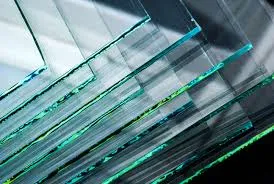The Contribution of Float Glass in Modern Construction
Float glass, a type of glass created through a unique manufacturing process involving molten tin, has become a cornerstone of modern construction. Its properties, including clarity, strength, and versatility, contribute significantly to various architectural designs and functional applications. Float glass is not only aesthetically pleasing but also offers practical benefits that enhance the performance of buildings.
The Contribution of Float Glass in Modern Construction
In addition to its aesthetic advantages, float glass offers excellent thermal insulation properties. When used in double or triple glazing systems, float glass can significantly reduce heat transfer, keeping buildings warmer in the winter and cooler in the summer. This thermal efficiency not only enhances comfort for occupants but also lowers heating and cooling costs, making it an energy-efficient choice for modern construction.
float glass used in construction
Security is another critical consideration in building design, and float glass can be treated and manufactured to meet various security standards. Laminated float glass, for instance, incorporates an interlayer that holds the glass together even when shattered. This feature is particularly valuable in high-traffic areas or vulnerable locations, providing an additional layer of protection against forced entry and accidents while still maintaining an appealing appearance.
Furthermore, float glass is environmentally friendly. The production process can be designed to minimize waste, and many manufacturers use recycled glass in their manufacturing processes. Float glass is also fully recyclable; when a building reaches the end of its life cycle, the glass can be reclaimed and repurposed for new applications. This circular approach to glass usage aligns with the principles of sustainable construction, reinforcing the industry's commitment to reducing its environmental impact.
The architectural possibilities afforded by float glass are virtually limitless. From skyscrapers with expansive glass facades to residential structures that blend seamlessly with their surroundings, float glass enables creative expression and innovation in design. Additionally, advancements in glass technology have led to the development of intelligent glazing options, such as self-tinting and electrochromic glass, further expanding its applications in energy efficiency and climate control within buildings.
In conclusion, float glass is an invaluable material in modern construction, contributing to both functional and aesthetic aspects of building design. Its clarity, thermal insulating properties, security features, and environmental sustainability make it a preferred choice for architects and builders alike. As the construction industry continues to evolve, the role of float glass will undoubtedly expand, shaping the way we experience and interact with the built environment. Embracing this material allows for innovative and sustainable architectural solutions that meet the needs of today and future generations.
 Afrikaans
Afrikaans  Albanian
Albanian  Amharic
Amharic  Arabic
Arabic  Armenian
Armenian  Azerbaijani
Azerbaijani  Basque
Basque  Belarusian
Belarusian  Bengali
Bengali  Bosnian
Bosnian  Bulgarian
Bulgarian  Catalan
Catalan  Cebuano
Cebuano  Corsican
Corsican  Croatian
Croatian  Czech
Czech  Danish
Danish  Dutch
Dutch  English
English  Esperanto
Esperanto  Estonian
Estonian  Finnish
Finnish  French
French  Frisian
Frisian  Galician
Galician  Georgian
Georgian  German
German  Greek
Greek  Gujarati
Gujarati  Haitian Creole
Haitian Creole  hausa
hausa  hawaiian
hawaiian  Hebrew
Hebrew  Hindi
Hindi  Miao
Miao  Hungarian
Hungarian  Icelandic
Icelandic  igbo
igbo  Indonesian
Indonesian  irish
irish  Italian
Italian  Japanese
Japanese  Javanese
Javanese  Kannada
Kannada  kazakh
kazakh  Khmer
Khmer  Rwandese
Rwandese  Korean
Korean  Kurdish
Kurdish  Kyrgyz
Kyrgyz  Lao
Lao  Latin
Latin  Latvian
Latvian  Lithuanian
Lithuanian  Luxembourgish
Luxembourgish  Macedonian
Macedonian  Malgashi
Malgashi  Malay
Malay  Malayalam
Malayalam  Maltese
Maltese  Maori
Maori  Marathi
Marathi  Mongolian
Mongolian  Myanmar
Myanmar  Nepali
Nepali  Norwegian
Norwegian  Norwegian
Norwegian  Occitan
Occitan  Pashto
Pashto  Persian
Persian  Polish
Polish  Portuguese
Portuguese  Punjabi
Punjabi  Romanian
Romanian  Russian
Russian  Samoan
Samoan  Scottish Gaelic
Scottish Gaelic  Serbian
Serbian  Sesotho
Sesotho  Shona
Shona  Sindhi
Sindhi  Sinhala
Sinhala  Slovak
Slovak  Slovenian
Slovenian  Somali
Somali  Spanish
Spanish  Sundanese
Sundanese  Swahili
Swahili  Swedish
Swedish  Tagalog
Tagalog  Tajik
Tajik  Tamil
Tamil  Tatar
Tatar  Telugu
Telugu  Thai
Thai  Turkish
Turkish  Turkmen
Turkmen  Ukrainian
Ukrainian  Urdu
Urdu  Uighur
Uighur  Uzbek
Uzbek  Vietnamese
Vietnamese  Welsh
Welsh  Bantu
Bantu  Yiddish
Yiddish  Yoruba
Yoruba  Zulu
Zulu 

